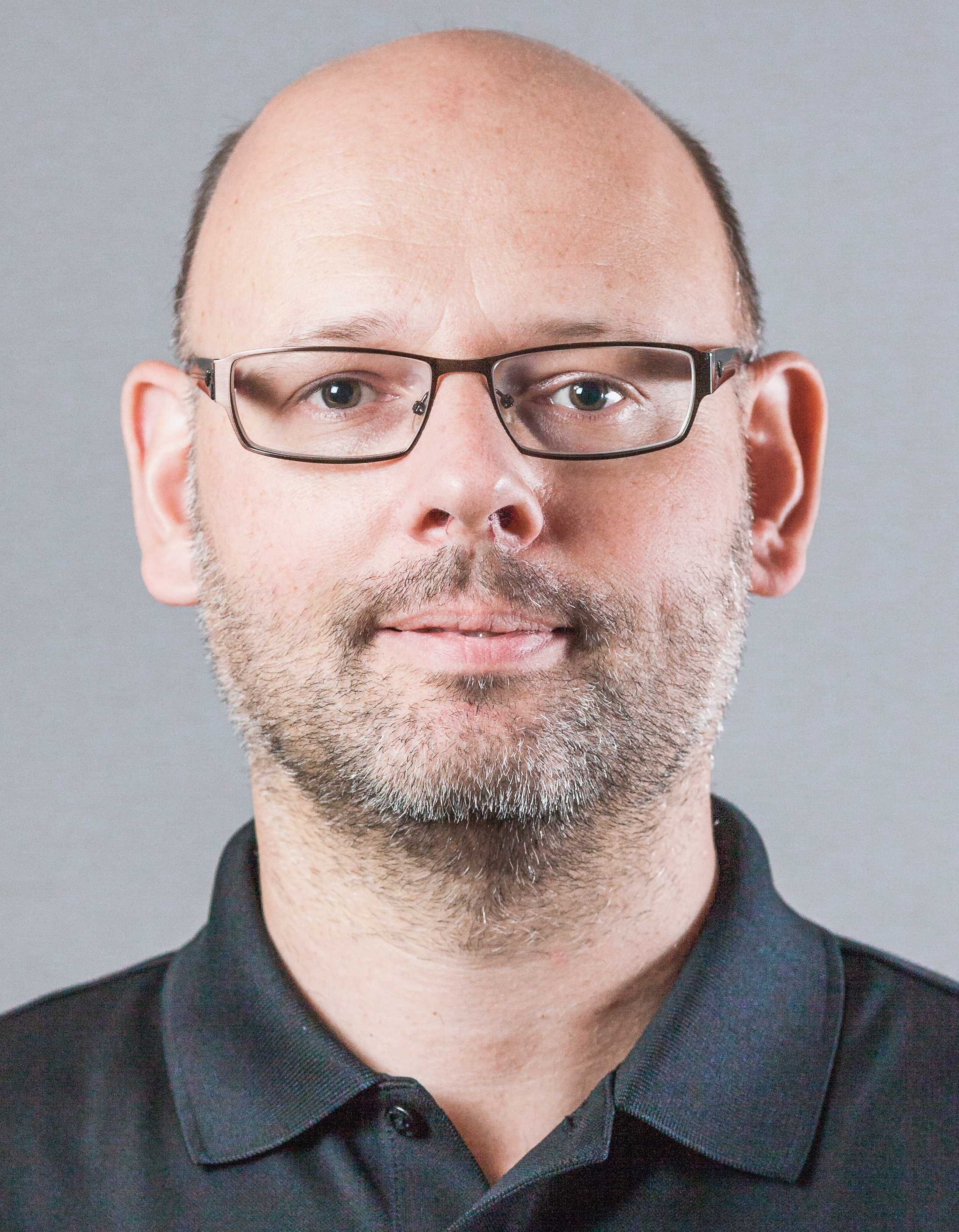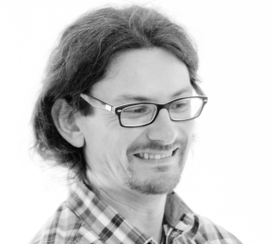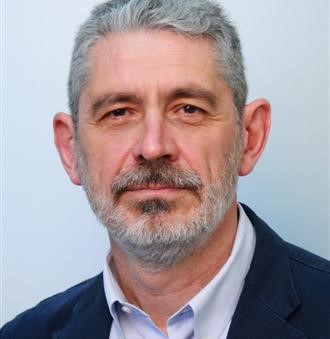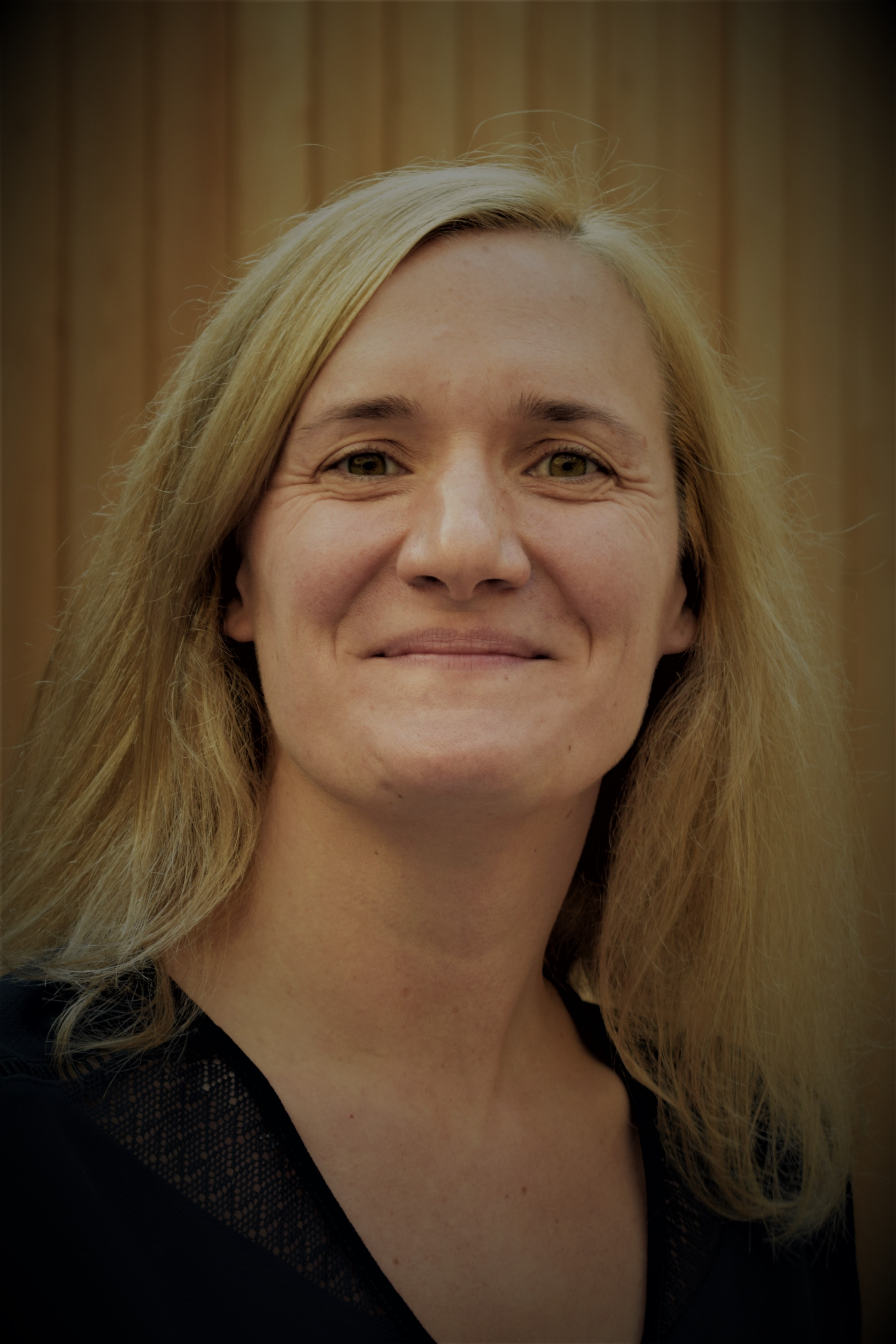DATE 2025 Technical Programme Committee
TPC chairs and members can update their personnel data like affiliation in SoftConf only. Please update your data in your SoftConf Profile. This page is updated automatically each full hour.
Track D: Design Methods and Tools
addresses design automation, design tools and hardware architectures for electronic and embedded systems. The emphasis is on methods, algorithms, and tools related to the use of computers in designing complete systems. The track focus includes significant improvements on existing design methods and tools as well as forward-looking approaches to model and design future system architectures, design flows, and environments.
Topics
Click on the topic title to find further details.
- D1 System-level design methodologies and high-level synthesis
- D2 System simulation and validation
- D3 Formal methods and verification
- DT4 Design and test for analog and mixed-signal circuits and systems, and MEMS
- DT5 Design and test of hardware security primitives
- DT6 Design and test of secure systems
- D7 Network on chip and on-chip communication
- D8 Architectural and microarchitectural design
- D9 Low-power, energy-efficient and thermal-aware design
- D10 Approximate computing
- D11 Reconfigurable systems
- D12 Logical analysis and design
- D13 Physical analysis and design
- D14 Emerging design technologies for future computing
- D15 Emerging design technologies for future memories
- D16 Design Automation for Quantum Computing
Track A: Application Design
is devoted to the presentation and discussion of design experiences with a high degree of industrial relevance, real-world implementations, and applications of specific design and test methodologies. Contributions should illustrate innovative or record-breaking design and test methodologies, which will provide viable solutions in tomorrow’s silicon, embedded systems, and large-scale systems.
Topics
Click on the topic title to find further details.
Track T: Test and Dependability
covers all test, design-for-test, reliability, and design-for-robustness issues, at system-, chip-, circuit-, and device-level for both analogue and digital electronics. Topics of interest also include diagnosis, failure mode analysis, debug and post-silicon validation challenges, and test or fault injection methods addressing system security.
Topics
Click on the topic title to find further details.
- T1 Modeling and mitigation of defects, faults, variability, and reliability
- T2 Test generation, test architectures, design for test, and diagnosis
- T3 Dependability and system-level test
- DT4 Design and test for analog and mixed-signal circuits and systems, and MEMS
- DT5 Design and test of hardware security primitives
- DT6 Design and test of secure systems
Track E: Embedded Systems Design
is devoted to the modelling, analysis, design, verification and deployment of embedded software or embedded/cyber-physical systems. Areas of interest include methods, tools, methodologies and development environments for real-time systems, cyber-physical systems, networked systems, and dependable systems. Emphasis is, also, on model-based design and verification, embedded software platforms, software compilation and integration for these systems.
Topics
Click on the topic title to find further details.
- E1 Embedded software architecture, compilers and tool chains
- E2 Real-time, dependable and privacy-enhanced systems
- E3 Machine learning solutions for embedded and cyber-physical systems
- E4 Design methodologies for machine learning architectures
- E5 Design, specification, modeling and verification for embedded and cyber-physical systems
Topics per Track
Track D: Design Methods and Tools
D1 System-level design methodologies and high-level synthesis
High-level and system-level synthesis techniques; high-level languages for system and behavioural descriptions; system-level models for design and optimization; methods for HW-SW co-design and partitioning; HW-SW interface and protocol communication synthesis; interface-based and correct-by-construction designs; control and data flow analysis; high-level and system-level scheduling, allocation, and binding techniques; design space exploration and systematic optimization techniques for high-level synthesis and system-level design; platform-based and reuse-centric design methods and architectures, including accelerator-rich architectures; HW/SW design patterns for multi-processor system-on-chip (MPSoC); system-level design of heterogeneous computing systems; high-level synthesis and system-level design for machine-learning applications.
Topic Members
D2 System simulation and validation
Simulation-based and semi-formal validation and verification of SoCs, cyber-physical systems and emerging architectures at any level, from system to circuit, including, in particular, testbench and assertion generation and qualification, coverage metrics for functional validation and verification, checker synthesis and optimization, acceleration-driven and emulation-based approaches for verification and validation, simulation-based pre- and post-silicon debugging, validation and verification for IoT and cloud infrastructures and semi-formal methods for security verification and detection of vulnerabilities, with or without the employment of artificial intelligence or machine learning techniques. NOTE: Papers on simulation of analog circuits should target DT4.
Topic Members
D3 Formal methods and verification
Formal models of software and hardware systems; formal verification and specification techniques (including equivalence checking, model checking, symbolic simulation, theorem proving, abstraction, techniques and compositional reasoning); core algorithmic technologies supporting formal verification such as SAT and SMT techniques; formal verification of hardware (including IPs, SoCs, and cores), software, HW-SW systems, timed, or hybrid systems; semi-formal verification techniques; integration of verification into design flows; challenges of multi-cores (as verification targets or as verification host platforms); formal synthesis; formal methods in emerging technologies.
Topic Members
DT4 Design and test for analog and mixed-signal circuits and systems, and MEMS
Analog, radio-frequency, mixed-signal, MEMS system and circuit synthesis and optimization; layout and parasitic-aware synthesis; design for manufacturability, yield, reliability; analysis of variability effects; performance modeling; formal, numerical and symbolic simulation methods; topology generation; HW description languages and models of computation; self-healing and self-calibration; test generation, built-in self-test and design for testability; fault modelling, diagnosis and simulation; defect characterization and failure analysis; on-line test and fault tolerance; test metrics.
Topic Members
DT5 Design and test of hardware security primitives
Hardware security primitives, including (post-quantum) cryptographic circuits; MPC, zero-knowledge proof systems and homomorphic encryption; side-channel countermeasure primitives and analysis (including modelling, verification, and simulation); fault injection countermeasures and attacks; physically unclonable functions (PUF) and true random number generators (TRNG); hardware trojan primitives; AI methods in hardware security and AI hardware; nano security primitives; lightweight crypto primitives
Topic Members
DT6 Design and test of secure systems
Design-for-trust (secure design methods); Test infrastructures for secure devices; Trusted manufacturing; Counterfeit detection and avoidance; Design, test and automation (for HW tampering attacks and protection, for Countermeasures, for Side-channel protection verification, for Fault protection verification); Microarchitectural attacks; HW trojans (attacks, detection, or countermeasures); Machine learning for the above topics, Side-channel attacks on machine learning and counter measures.
Topic Members
D7 Network on chip and on-chip communication
Architecture, design methodologies, modelling and simulation techniques for intra- and inter-chip interconnects, network-on-chip and on-chip communication infrastructure, including, but not limited to, topology, routers, interfaces, flow control, quality of service, security, reliability, design space exploration frameworks, on-chip communication specifications and programming models for communication-centric design. Contributions from specific applicative domains are welcomed such as interconnects for high-performance computing, in- or near-memory computing, machine-learning, artificial intelligence accelerators. The topic also covers the design of on-chip communication infrastructures with technological constraints (FPGA, interposer/chiplet for 2.5D, 3D, photonics, non-volatile memory, wireless, etc)
Topic Members
D8 Architectural and microarchitectural design
Architectural and microarchitectural design techniques, including: memory systems; architectural methods for improving power and energy efficiency; multi/many-core architectures; multi-threading techniques and support for parallelism; application-specific processors and accelerators; architectural support for timing predictability.
Topic Members
D9 Low-power, energy-efficient and thermal-aware design
Theories, tools, methodologies and circuit-level structures to implement electronic circuits and systems with low power consumption, high energy efficiency, and correct thermal behaviour. These can be applied to a full range of applications, from ultra-low power systems (e.g. for portable/wearable applications at the edge of the IoT) to large-scale battery systems (electric vehicles, energy storage systems) and high-performance systems (data-centres and cloud computing). Topics of interest include: thermal/power monitors and knobs at circuit level; hardware/software cross-layer optimizations, with emphasis on power modelling and optimization; temperature modelling and prediction; thermal-power-aware optimization; energy-aware design, battery-aware design, including energy efficiency optimization for application specific designs (e.g. AI, ML, etc.); smart management of heterogeneous energy-sources; energy harvesting for cyber-physical systems.
Topic Members
D10 Approximate computing
Design techniques enabling and supporting approximate computing at all levels of the computer stack: circuit, architecture, memory, operating system and software level; top-down and bottom-up approaches; finite precision arithmetic, inexact operators; cross-level approximation; quality analysis of approximate systems; dynamic approximation; design automation tools for approximate computing and their benchmarking; design techniques for stochastic computing.
Topic Members
D11 Reconfigurable systems
Reconfigurable computing platforms and architectures; heterogeneous, run-time reconfigurable platforms; reconfigurable processors; statically and dynamically reconfigurable systems and components; reconfigurable computing for machine learning, data centre and high-performance computing; FPGA architecture; FPGA partial reconfiguration; design methods and tools for reconfigurable computing.
Topic Members
D12 Logical analysis and design
Combinational and sequential synthesis for deep-submicron circuits; data structures for synthesis; technology mapping; performance and timing-driven synthesis; logic synthesis for emerging technologies; hierarchical and non-hierarchical controller synthesis; methods for FSM optimization, synthesis and analysis; FPGA synthesis; arithmetic circuits; logic ECO (engineering change order); logic synthesis utilizing AI/ML techniques; interaction between logic synthesis and physical design.
Topic Members
D13 Physical analysis and design
Statistical timing analysis and closure; asynchronous and mixed synchronous/asynchronous circuits; floorplanning; automated place-and-route; interconnect- and performance-driven layout; process technology developments; parasitic and variation-aware extraction for on-chip interconnect and passives; macro-modelling, behavioural and reduced order modelling; modelling and analysis of noise due to electromagnetic interaction of signal, power/ground, and substrate.
Topic Members
D14 Emerging design technologies for future computing
Modelling, circuit design, HW/SW co-design, and design automation flows for future computing, including: logic devices based on emerging technologies (e.g., spintronics, ferroelectrics, 2D materials, tunnel transistors, coupled oscillators, NEMS, etc.); alternative interconnect technologies (e.g., optical, RF, 3D, 2D materials, spintronics, etc.); monolithic 3D integration (including TSV modelling and design space exploration, etc.).
Topic Members
D15 Emerging design technologies for future memories
Modelling, circuit design, and design automation flows for future data storage systems, including non-CMOS memory (e.g., MRAM, STT-RAM, FeRAM, PCRAM, RRAM, OxRAM, quantum dots, etc.); memory-centric architectures (e.g., logic-in-memory, Computation-in-memory, neuromorphic computing, DNN accelerator, near memory, 3D-integration, associative memories, non-volatile caches etc.); memory management techniques for emerging memories.
Topic Members
D16 Design Automation for Quantum Computing
Design methodologies and design automation for quantum and hybrid quantum-classical architectures; compilation, mapping and synthesis methods for quantum circuits; design and performance evaluation of NISQ and beyond algorithms and applications; quantum technologies and hardware architectures; simulation, verification, reliability, test, quantum error correction and error mitigation in quantum systems; design of full-stack quantum computing systems and cross-layer methodologies for NISQ and scalable modular architectures; hardware-software co-design; cryo-CMOS control electronics.
Topic Members
Track A: Application Design
A1 Power-efficiency and Smart Energy Systems for Sustainable Computing
Application design experiences and real implementations of power-efficient and smart energy systems (from uW to microgrid) systems or circuits with high industrial relevance or high environmental impact, especially targeting ultra-low-power, high-performance, or large-scale computing systems and related Internet-of-things/Cyber-Physical applications for sustainable computing (such as MPSoCs, mobile systems, massively parallel computers, 2D/3D multi-/many-core systems, high-performance computing clusters, data centres, and cloud systems).
Topic Members
A2 Smart Society and Digital Wellness
Design experiences, practical applications, optimization, and real-life implementations of software, devices, systems, and services, from the Edge to the Cloud, for smart cities, smart homes and people wellness, based on mass market electronics, Internet of Things (IoT), Internet of Medical Things (IoMT), and Internet-of-Everything (IoE). This encompasses a diverse array of subjects, ranging from the development and deployment of advanced technologies to their seamless integration into modern everyday life by means of a variety of AI-powered smart devices and intelligent systems with sensing and acting capabilities, which are adopted in different sectors: from individual’s social care and healthcare to home automation and management of urban infrastructures. Topics of interests include, but are not limited to, the design, the optimization and the application of sensors, sensor networks, wearables, smart devices, cyberphysical and robotic systems for smart home, smart cities, and people wellness, including augmented and assisted living, social care products, healthcare devices, technologies and services for disease’s prevention, diagnosis, treatment and rehabilitation, smart transportation, environmental monitoring, resources’ supply and management (e.g., water, air, energy, etc.), lighting, street cleaning, disposal facilities, etc. including also the use of security-privacy techniques and blockchain technology, 5G and 6G mobile communications, networking devices, audio and video technologies, and advanced human-machine interfaces.
Topic Members
A3 Secure Systems, Circuits and Architectures
Secure systems, circuits and architectures, with an emphasis on design experiences, real system deployments, applications, and silicon prototypes. Topics of interest include: secure HW architectures; hardware/software implementations architectures for post quantum embedded cryptography (e.g., post-quantum, lightweight, homomorphic); emerging technologies for secure systems, circuits and architectures; novel architectures for embedded cryptography; demonstrations of fault or other physical attacks (e.g., fault, side-channel) and countermeasures; embedded processors or co-processors for security; protection of off-chip memories, and Network-on-Chip and secure communication/integrity; demonstrations of HW-enabled security on real systems or prototypes; logic-level security; firmware security.
Topic Members
A4 Autonomous Systems and Smart Industry
This topic focuses on self-adaptive, learning and/or context-aware systems with run-time decision-making for smart sensing/acting and efficient computing/communication. It targets the compute continuum, covering high-performance compute nodes, power-constrained IoT/edge devices, reconfigurable systems, and heterogeneous/collaborative platforms. Optimization goals involve computing performance, energy/power, reliability, temperature, aging, or quality. Topics of interest include but are not limited to: Adaptive strategies for run-time resource management; Prediction/forecasting and control of self-adaptive systems; Systems and/or algorithms that can adapt their operation based on available resources and context; Data mining, modeling, and optimization techniques for adaptive systems (e.g. control automation and game theory.); Automotive; Autonomous Driving; Mobile Robotics; Human-Robot collaborations in smart factories; Industry 4.0 and 5.0; Digital Twins; Virtualization; Metaverse; 5G/6G; MEMS; Integrated sensors and transducers; Design experiences and industrial use-cases of self-adaptive systems.
Topic Members
A5 Applications of Emerging Technologies
Applications of and design methods for systems based on future and emerging technologies. Topics of interest include: neuromorphic and bio-inspired computing systems; bio-MEMS and lab-on-a-chip; emerging models of computation (e.g., quantum computing, reversible logic, approximate computing, stochastic computing); application case studies for emerging technologies (e.g., cryptography, wearable computing, e-textiles, energy-critical systems, etc.).
Topic Members
A6 Applications of Artificial Intelligence Systems
Advanced technologies and systems, software, algorithmic and co-design approaches and optimizations for artificial intelligence (AI), machine learning and deep learning solutions for domain-specific applications in the context of computing continuum and embodied AI: from resource-constrained edge devices (for example machine learning on microcontrollers and low-power processors embedded in mobile and/or autonomous systems) up to high-performance computing in the cloud and their applications. Topics of interests include Computer Vision, Natural Language Processing, Generative AI, Large Language Models, Large Vision Models, Vision-Language Models, Few-Shot Learning, Continual Learning, Distributed and Federated AI, Robust AI, Real-Time and Adaptive Inference, Quantization and Pruning, Neural Architecture Search.
Topic Members
Track T: Test and Dependability
T1 Modeling and mitigation of defects, faults, variability, and reliability
Identification, characterization, and modelling of defects, faults, and degradation mechanisms in conventional, advanced, or emerging technologies (FinFET, FDSOI, TSV, Memristor, MTJ, CNT, etc.); defect-based fault analysis; reliability assessment and modelling at device, circuit, or system level; process yield modelling and enhancement; design-for-manufacturability, design-for-yield and design-for-reliability; noise and uncertainty modelling at device or circuit level; modelling and mitigation of physical sources of faults and errors such as process, voltage, temperature and temporal variations at device or circuit level.
Topic Members
T2 Test generation, test architectures, design for test, and diagnosis
Automated test pattern generation targeting basic and advanced fault models (timing-related, defect-based, cell-aware) in a wide range of semiconductor digital integrated circuits including microprocessors, SoC, FPGAs, memories, NoCs, accelerators, hardware for machine learning and artificial intelligence, 2.5D and 3D architectures; silent data corruption; fault simulation; power and thermal issues in test; design for testability (DFT); test compression; multi-corner stress tests; volume fault diagnosis and yield analysis; logic built-in self-test (BIST) and memory BIST; in-system test; board and system-level test; test scheduling; machine learning and artificial intelligence in IC testing.
Topic Members
T3 Dependability and system-level test
Dependability evaluation and enhancement solutions crossing all layers of the computing system’s stack including but not limited to: microarchitecture-level, architecture-level, software-level, and system-level; fault and error modelling; cross-layer dependability analysis, evaluation, and improvements; reliable and fail-safe architectures and systems design; system-level on-line test and functional safety; runtime system management for dependability; application resilience; high-level synthesis (HLS) dependability, approximate computing for resilient systems, computational intelligence methods (AI/ML) for dependability; system-level and microarchitecture-level solutions for safety- and mission-critical systems; large-scale computing dependability and emerging failure modes, silent data corruptions at scale (cloud, HPC, edge, IoT).
Topic Members
DT4 Design and test for analog and mixed-signal circuits and systems, and MEMS
Analog, radio-frequency, mixed-signal, MEMS system and circuit synthesis and optimization; layout and parasitic-aware synthesis; design for manufacturability, yield, reliability; analysis of variability effects; performance modeling; formal, numerical and symbolic simulation methods; topology generation; HW description languages and models of computation; self-healing and self-calibration; test generation, built-in self-test and design for testability; fault modelling, diagnosis and simulation; defect characterization and failure analysis; on-line test and fault tolerance; test metrics.
Topic Members
DT5 Design and test of hardware security primitives
Hardware security primitives, including (post-quantum) cryptographic circuits; MPC, zero-knowledge proof systems and homomorphic encryption; side-channel countermeasure primitives and analysis (including modelling, verification, and simulation); fault injection countermeasures and attacks; physically unclonable functions (PUF) and true random number generators (TRNG); hardware trojan primitives; AI methods in hardware security and AI hardware; nano security primitives; lightweight crypto primitives
Topic Members
DT6 Design and test of secure systems
Design-for-trust (secure design methods); Test infrastructures for secure devices; Trusted manufacturing; Counterfeit detection and avoidance; Design, test and automation (for HW tampering attacks and protection, for Countermeasures, for Side-channel protection verification, for Fault protection verification); Microarchitectural attacks; HW trojans (attacks, detection, or countermeasures); Machine learning for the above topics, Side-channel attacks on machine learning and counter measures.
Topic Members
Track E: Embedded Systems Design
E1 Embedded software architecture, compilers and tool chains
Software architectures, programming paradigms, languages, compiler support, software tools, and techniques (e.g., simulators, synthesis tools) targeting embedded heterogeneous systems for domain-specific applications such as IoTs and wearables; embedded software support for approximate computation and FPGA/GPU based accelerators; memory communication protocols and hierarchy management, including caches, scratchpad, and non-volatile memories; code analysis, code optimization/generation to enhance performance, power/energy, code/data size, reliability, security, distributed system software, virtualization, and middleware for embedded systems, including resource-awareness, reconfiguration, energy/power management; compiler support for enhanced debugging, profiling, and traceability.
Topic Members
E2 Real-time, dependable and privacy-enhanced systems
Real-time performance modelling, analysis and empirical evaluation; worst-case performance analysis techniques; WCET analyses, real-time schedulability of multicore systems; use of hardware virtualization techniques in time-critical applications; power-aware real-time systems; industrial case studies of real-time, networked and dependable systems; adaptive real-time systems; dependable real-time systems including fault-tolerance and criticality; timing analysis of security attack protection and privacy-enhancement in time-critical systems; network control and QoS for embedded applications; resource allocation and design-space exploration for real-time embedded systems.
Topic Members
E3 Machine learning solutions for embedded and cyber-physical systems
Hardware architectures, software and algorithmic approaches for artificial intelligence, machine learning and deep learning solutions; specialized, heterogeneous, and resource-efficient embedded architectures for machine learning; embedded architectures and software for autonomy, automated reasoning, and planning algorithms; case studies of machine learning applications implemented on embedded systems and cyber physical systems.
Topic Members
E4 Design methodologies for machine learning architectures
Design methodologies, optimizations, verification, analysis and reliability for machine learning architectures; Specializations, and resource-efficient optimizations for machine learning architectures; Embedded architectures and software for autonomy, automated reasoning, and planning algorithms; Approximate architectures for machine learning applications; Learning from limited data sets; Frameworks for probabilistic and deep learning programming; Safe and secure machine learning; novel neural networks architectures and concepts for embedded computing; In-memory and near-memory architectures design for ML; Hyperdimensional computing architectures and ML applications; Quantum computing for ML; Co-design space exploration for ML applications.
Topic Members
E5 Design, specification, modeling and verification for embedded and cyber-physical systems
Modelling, design, verification, validation and optimization of complex, heterogeneous, distributed Cyber-Physical Systems (CPS); specification and analysis of functional and non-functional properties, including performance, timing, memory usage, quality-of-service, safety and reliability; meta-models and models of computation, communication, and concurrency for complex HW-SW systems and components of CPS; theories, standards, languages and tools supporting model-based design flows covering software, control, and physical components; verification techniques ranging from simulation, testing, model-checking, SAT and SMT-based reasoning, compositional analysis and analytical methods as well as monitoring and runtime verification; data-mining, autonomy, and adaptivity in CPS, networked and switched control systems (e.g. control/architecture co-design and architecture-aware controller synthesis); cognitive control for CPS and socio-technical systems (e.g. empowered consumer and organizational behaviour in smart grids); predictive and learning-based models for CPS.
Topic Members
Late Breaking Results (LBR)
Co-chair: Annachiara Ruospo, Politecnico di Torino, IT
Co-chair: Pascal Vivet, CEA, France
Topic members
- Rajendra Bishnoi, Delft University of Technology, NL
- Christos Bouganis, Imperial College London, GB
- Benjamin Carrion Schaefer, The University of Texas at Dallas, US
- Valentina Ciriani, Università degli Studi di Milano, IT
- Francesco Conti, University of Bologna, IT
- Matthias Fuegger, CNRS & LMF, ENS Paris-Saclay, FR
- Dimitris Gizopoulos, University of Athens, GR
- Mariagrazia Graziano, Politecnico di Torino, IT
- Sybille Hellebrand, University of Paderborn, DE
- Mike Hutter, PQShield, AT
- Leonidas Kosmidis, Barcelona Supercomputing Center (BSC) and Universitat Politècnica de Catalunya (UPC), ES
- Christos Kyrkou, KIOS CoE, University of Cyprus, CY
- Cedric Marchand, Ecole centrale de Lyon, FR
- Ricardo Martins, Instituto de Telecomunicações / Instituto Superior Técnico – Universidade de Lisboa, PT
- Daniel Menard, INSA Rennes, FR
- Michael Niemier, University of Notre Dame, US
- Priyadarshini Panda, Yale University, US
- Leticia Poehls, RWTH Aachen University, DE
- Ilia Polian, University of Stuttgart, DE
- Graziano Pravandelli, University of Verona, IT
- Stefano Quer, Politecnico di Torino, IT
- Semeen Rehman, University of Amsterdam UvA, NL
- Ahmed Rezine, Linköping University, SE
- Georg Weissenbacher, Vienna University of Technology, AT
- Davide Zoni, Politecnico di Milano, IT
- Alexander Zuepke, Technical University of Munich, DE
Following the successful first edition in 2023 and 2024, DATE 2025 provides the community with an opportunity to present new and exciting contributions for submission as Late Breaking Results (LBR) papers. LBR papers should cover new research relevant to the DATE topics. Two types of papers can be submitted:
- breakthrough approaches or novel orthogonal research directions
- breakthrough results, where sufficient work has been accomplished to indicate the viability of the work
Prospective authors are invited to submit Late Breaking Results papers (2 pages and two-column format) describing original and innovative work. Authors should use the template provided on the DATE website, with a blind submission. LBR submission titles must begin with "Late Breaking Results: …". Accepted LBR submissions will be presented in dedicated technical sessions focussing on live interactions around the submitted work to get feedback and exchange with the DATE community. Please note that the Late Breaking Results deadline is not an extension of the general paper submission deadline.



 D-Track Chair
D-Track Chair Vice Programme Chair and A-Track Chair
Vice Programme Chair and A-Track Chair T-Track Chair
T-Track Chair E-Track Chair
E-Track Chair